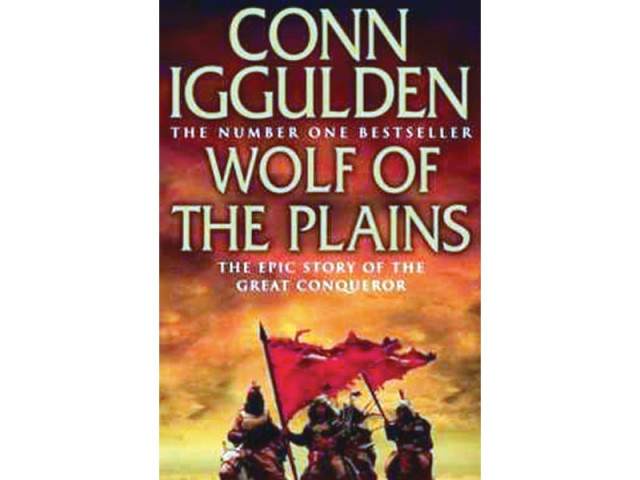Book review: Wolf of the Plains — Blood and fire
We are transported to another world: bitter sea of grass that shaped a nation of warriors who shook the world.

Since then, I’ve snapped up just about anything and everything on the Mongol empire, from John Wayne’s the Conquerer (not recommended) to the more recent Mongol (too inaccurate). So when I came across Conn Iggulden’s Wolf of the Plains, I picked it up immediately.
Igulden is known for his historical fiction, notably the Emperor series on Julius Caesar, which I wasn’t a big fan of. So it was with some trepidation that I started to read his latest saga. I wasn’t disappointed. Starting with Wolf of the Plains and ending (so far) with Empire of Silver, the series follows Temujin from his beginnings as a refugee on the endless plains of Mongolia to the man whose word and warriors brought death and destruction countless nations and whose legacy still lives today.
The word Mughal after all is a corruption of Mongol and the surname Chughtai is probably also derived from Genghis’s son Chagatai Khan. Here ends the history lesson. Back to the books.
From the first page we are transported to another world: the bitter sea of grass that shaped a nation of warriors who shook the world. The harsh winters, the struggle for survival and the impact such a brutal environment has on those who live there is brilliantly depicted. To a tribesman death is closer than his own shadow and weakness, or what we would call humanity, simply cannot exist in such a land.
In writing a book like this, it is easy to succumb to the sweep of history and gloss over the acts of individuals. In the hands of a novice, the events take precedence over the people who caused them and historical characters become mere ciphers — their personalities lost in the giant tapestry. Luckily, Iggulden is no novice and under his expert treatment, even bit characters are sketched out fully, and we can identify with their situations, feel for their failures and very often, wonder at their casual brutality.
While he excels at depicting Mongol society and its eventual transformation from scattered tribes to a nation, he tends to lose momentum when the hordes cross over into Central Asia. Historical errors and omissions do tend to creep in especially when he depicts the society of the Khwarezm Shahs, especially when he misspells Jalal-ud-Din and Jelaudin — an anglicisation that completely changes the meaning of the name. Iggulden has been previously criticised for playing fast and loose with historical fact, something that is unavoidable in historical fiction, but at least in this series he adds notes explaining the liberties he took and the omissions he is guilty of. Still, I would have liked the more brutal legends of the Great Khan’s burial given at least a short nod. All in all despite its foibles (which are few and far between) the Conquerer series is a roaring good read.
Published in The Express Tribune, Sunday Magazine, July 24th, 2011.



















COMMENTS
Comments are moderated and generally will be posted if they are on-topic and not abusive.
For more information, please see our Comments FAQ